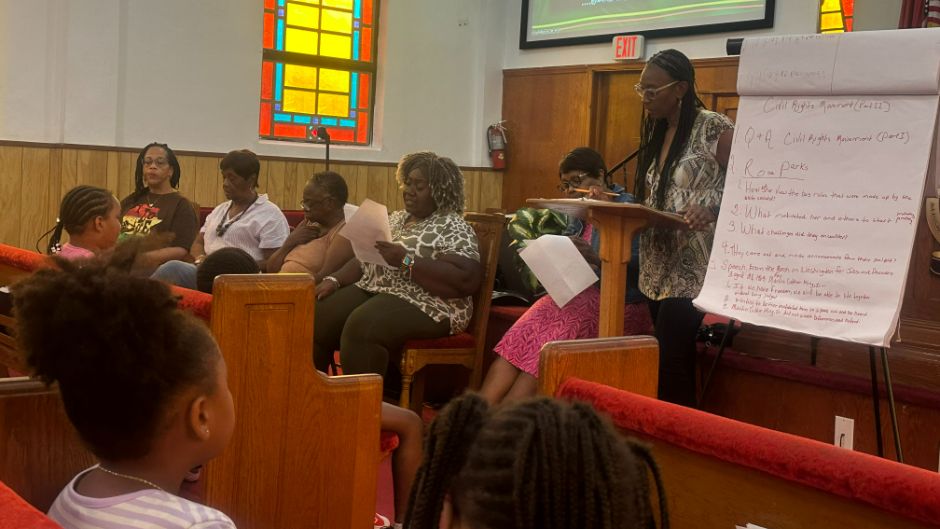The University of Miami School of Law's Center for Ethics and Public Service partnered with Macedonia Missionary Baptist Church and the Coconut Grove Ministerial Alliance of Black Churches to launch the Freedom School Program. The six-week initiative aims to provide Miami-Dade youth with a rich and empowering educational experience, focusing on Black history, cultural heritage, and community preservation.
"Today, in Florida and across the nation, it is more crucial than ever to ensure that children and families have access to an open and inclusive curriculum," said Carter Cooper, CEPS program coordinator. "The Freedom School Program stands as a beacon of hope and resilience, dedicated to preserving the integrity of our educational system and empowering our youth with the knowledge and skills they need to succeed."
The comprehensive summer school is designed to promote literacy, cultural awareness, and civic engagement among children and families in Miami-Dade County, particularly those of Coconut Grove Village West. By integrating Black history and cultural studies into the curriculum, the program, open to elementary through high school, aims to foster a deeper understanding and appreciation of Black collective heritage and its pivotal role in shaping our society.
"What a wonderful summer experience this year participating in the return of 'Freedom Schools,' the catalyst to enlighten and transform how/why our children should be educated about African American history while learning the fundamental principles of democracy and freedom," said Carolyn Donaldson, Freedom School collaborator and co-chair of Grove Rights and Community Equity, after the June 17 kickoff at Macedonia Missionary Baptist Church in Coconut Grove.
CEPS has been responsible for developing the 22-session Black history curriculum that will be taught Mondays through Thursdays throughout the summer program, and it has been curated by Cooper.
The program includes an in-depth Black history curriculum that explores the significant contributions of Black individuals and communities throughout history. It also focuses on literacy enrichment by enhancing reading and comprehension skills through a diverse selection of literature. Civic engagement is encouraged among students and families to become active community participants through service projects and discussions on social justice. Additionally, cultural enrichment is provided to expose the students to the arts, music, and traditions that celebrate and honor Black culture.
Founded in 1996, CEPS is a law school-housed ethics education, experiential skills training, and community engagement program devoted to ethical judgment, professional responsibility, and public service in law and society. They aim to educate law students to serve their communities as citizen lawyers.
For more information about the Freedom School Program or how to become involved, please contact Carter Cooper, CEPS program coordinator, at cdc206@miami.edu.
Read more about the Center for Ethics and Public Service.

